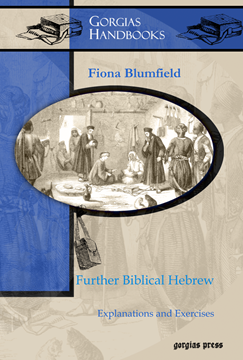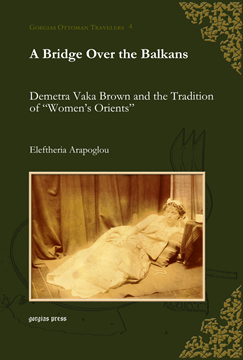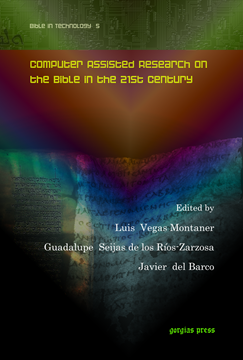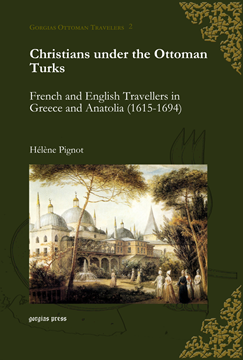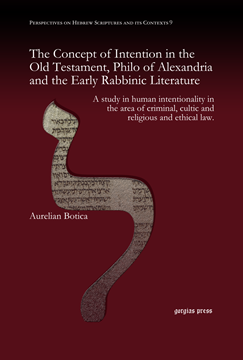Mormons and Evangelicals
Reasons for Faith
ISBN: 978-1-60724-027-3
Why do religious people believe? In this work, Smith describes and interprets the results of interviews conducted with Mormons and Evangelicals about their reasons for faith. In the end, he recommends a particular approach to faith that integrates the sociological, spiritual, and rational elements of religion.
$65.00 (USD)
Further Biblical Hebrew (hardback)
Explanations and Exercises
Series: Gorgias Handbooks 11
ISBN: 978-1-59333-948-7
This coursebook is designed for students who have completed at least one year of college study in Biblical Hebrew. It helps students make the transition from the basic grammar books to use of the comprehensive reference grammars and to more advanced analysis of Biblical Hebrew. Constant reference is made to recent works of grammar, and also to the grammatical comments of the medieval Jewish exegetes. A central theme is that medieval and modern Biblical Hebrew scholars have reached essentially similar conclusions, even if the medievals lacked modern terminology
$173.00 (USD) $103.80 (USD)
A Bridge Over the Balkans
Demetra Vaka Brown and the Tradition of “Women’s Orients”
Series: Gorgias Ottoman Travelers 4
ISBN: 978-1-59333-655-4
This critical study of Demetra Vaka Brown, one of the most significant Greek American writers of the turn of the last century, is framed within the fields of “Orientalism” and cultural studies. At once a white female and a Greek immigrant from the Ottoman Empire, she worked as a writer in the United States, publishing in English and contributing her work to mainstream publications. The book presents the identity politics of Vaka Brown, recovering the discursive techniques in her identification processes and assessing the significance of her agency in the context of the themes and preoccupations of Orientalism.
$168.00 (USD) $100.80 (USD)
Computer Assisted Research on the Bible in the 21st Century
ISBN: 978-1-60724-930-6
The application of computer technology to the edition and linguistic analysis of biblical texts has provided, in the last thirty years, advanced tools for research purposes as well as for teaching the Bible in the classroom. This discipline requires, nonetheless, a critical evaluation from a historical perspective, examining past and present achievements and failures. This collection of essays evaluates the current tools and considers what is needed to satisfy the increasing demand for software related to the biblical texts, and offers an overview of different trends in computer technology on the Bible.
$145.00 (USD) $87.00 (USD)
Christians under the Ottoman Turks
French and English Travellers in Greece and Anatolia (1615-1694)
Series: Gorgias Ottoman Travelers 2
ISBN: 978-1-59333-922-7
In the 17th century Britons left their country in vast numbers - explorers, diplomats, ecclesiastics, merchants, or simply “tourists.” Only the most intrepid ventured into the faraway lands of the Ottoman Empire. Their travel narratives, best-sellers in their day, provide an entertaining but also valuable testimony on the everyday life of Orthodox Christians and their coexistence with the Turks. Greek Christians, though living under the Ottoman yoke, enjoyed greater religious freedom than many of their brothers in Christian Europe. The travelers’ intellectual curiosity about Greece opened a window on the Orthodox Church, and paved the way for future dialogue.
$162.00 (USD) $97.20 (USD)
The Concept of Intention in the Old Testament, Philo of Alexandria and the Early Rabbinic Literature
A study in human intentionality in the area of criminal, cultic and religious and ethical law.
ISBN: 978-1-59333-653-0
Does God take into account only the physical act, or does He also consider intention? Does inward motivation truly matter in the areas of criminal or cultic law? Were there differences between the biblical, hellenistic and rabbinic views on intention? This book explores what the Old Testament, Philo, and the early Rabbis thought about human intentionality in a legal context.
$230.00 (USD) $138.00 (USD)

